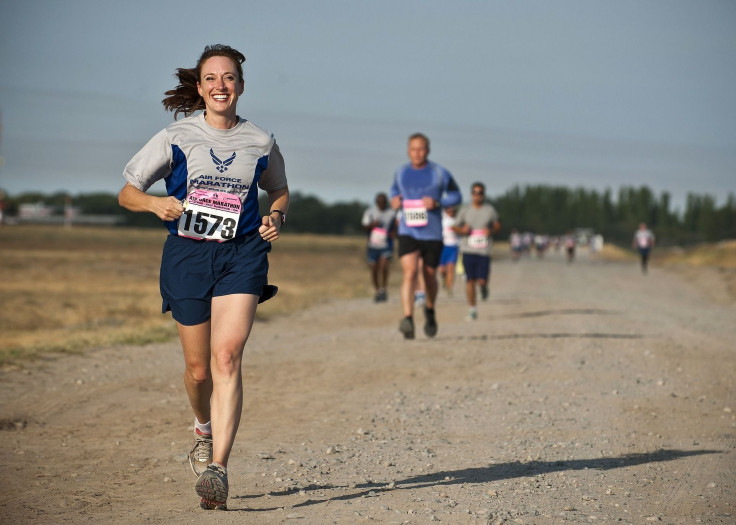7 Hacks To Become A Stronger, Faster Runner, Backed By Science

When it comes to running, we fall into one of these two categories: a seasoned pro or an amateur runner. Whether it's a new or old habit, there are running hacks that can improve our mileage and speed. No matter the reason we begin running, our goals remain the same: we want to get in shape and improve our health.
The most active runners are 25 to 44 year olds, who make up half of all race finishers. That means this demographic is more likely to sign up for races, and constantly train for them.
The beginner's guide to becoming a stronger, faster runner can help any type of runner get into race-shape and cross the finish line with these seven science-backed running hacks.
You Don't Have To Wear Compression Tights
Compression tights were previously believed to provide support for running and improve recovery time. According to the theory, compression pants reduced muscle vibrations, and in turn, reduce fatigue. A recent Nike-funded study found the reduced vibration triggered by compression pants was not linked to any reduction in fatigue. The runners performed the same with and without the pants.
However, researchers say the belief of thinking the pants are pushing runners the extra mile, could be enough to get them through a long run. If they make the runner feel comfortable, they could help them run farther. In other words, wear compression gear, but note it has no real effect on fatigue.
Don't Stretch
Conventional wisdom has taught all athletes it's important to stretch, but static stretching (stretch-and-hold movement) can actually decrease muscular power and efficiency. A 2012 study found doing static stretching before cycling decreased time-to-exhaustion by 26 percent, and increased average oxygen consumption by four percent. This means participants were fatigued faster and had to worker harder to maintain the same speed.
Don't Take Ibuprofen
Runners who take anti-inflammatory drugs after exercise could be ruining their fitness routine. A 2007 study found those who used anti-inflammatory drugs after the race experienced higher levels of post-race inflammation, and were just as sore the week after the race as those who didn't. This occurs because anti-inflammatory meds inhibit the body's natural response to physical stress, which is necessary for physical adaptation — changes in the muscles, bones, and cardiovascular system — to occur.
Do Get Enough Sleep
We all know a good night's sleep is essential to feel well-rested and alert the next day. This philosophy also applies when it comes to athletic performance. A 2011 study found five to seven weeks of sleep extension — going to bed earlier and/or getting up later — led to better performance, reaction time, and running speed for basketball players. A way to practice sleep extension is to go to bed earlier, and wake up at the same time every day.
Do Talk To Yourself
A motivational self-talk with ourselves can boost our confidence and athletic performance. A 2011 studyfound positively talking to ourselves made athletes more confident in their abilities and excited to compete. The researchers noted different self-talk cues work differently in specific situations. It's helpful for tasks that require improving fine skills or technique; saying "elbow-up" for beginner freestyle swimmers is more effective than "motivational self-talk" like saying "give it all."
Do Drink Chocolate Milk
Drinking chocolate milk can be the ideal drink when it comes to the first hours after running. Chocolate milk contains the ideal ratio of carbs to protein to quickly recover after intense exercise. A 2016 studyfound cyclists who had a recovery drink that contained a three-to-one carb-to-protein ratio after exhaustive exercise performed better the next day in their time trial compared to those who recovered with only carbs.
Do Time Your Carbs
Timing is everything when it comes to training and carbs. We all know reducing carbs intake trains the body to optimally use and store carbs, but this can be an issue when it comes to training. However, a 2016 study found when runners fueled up on carbs immediately before high intensity workout sessions, and then limited their carbs for the rest of the day, they performed better.
These runners started the next day with a low-carb breakfast, and a moderate-intensity workout, which required fewer carbs. After doing this seven-day cycle three times, or for three weeks, the runners increased their running economy — the steady-state consumption of oxygen (VO2) and the respiratory exchange ratio — and improved their 10K time by an average of 73 seconds.
These seven running hacks are helpful for both seasoned pros and amateur runners.
Copyright Medical Daily News Service. All rights reserved.





















